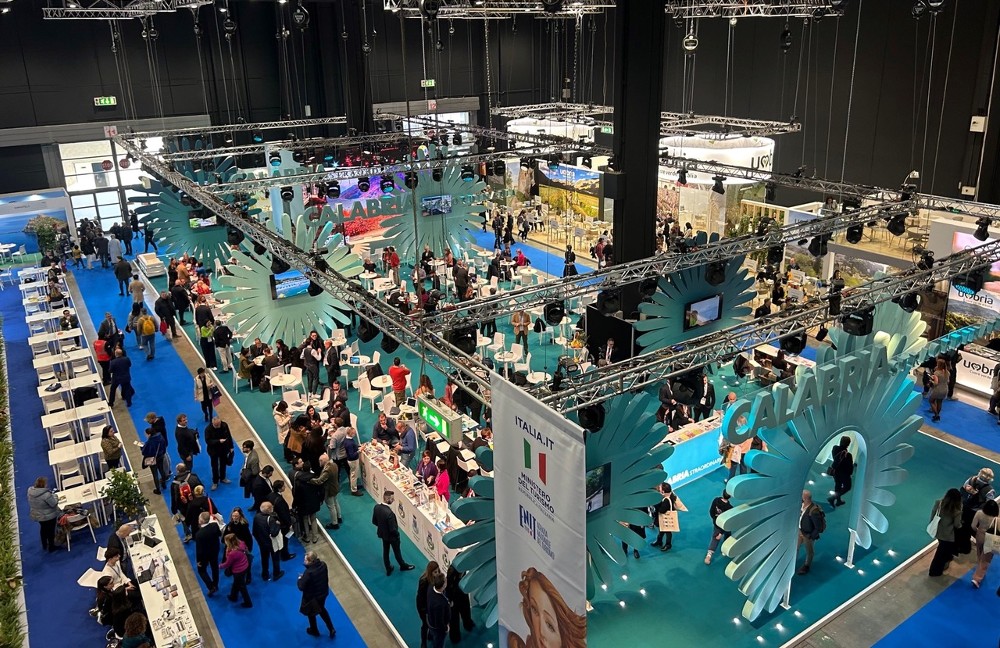BIT 2024: The Future of Tourism

By Massimo Terracina
The curtain falls on the 2024 edition of BIT, leaving Milan abuzz with the enchantment of a pivotal year for Italian tourism. The prevailing theme of customization emerges as a standout trend, infusing the entire sector with enthusiasm and vitality. Growing preferences for sustainable, authentic, and personalized experiences take center stage.
Slow, outdoor, and culinary tourism captivate attention, with Italy maintaining its status as a favorite destination. Regions such as Trentino-Alto Adige, Tuscany, Umbria, Basilicata, and Sicily shine amid the evolving landscape.
Sustainability is a key facet of the discourse, with 60% of Italian travelers factoring in environmental considerations when selecting destinations. According to the latest data from UNWTO, the international panorama is vibrant, anticipating a surge in international travel to reach 1.29 billion in 2023.
Against this backdrop, Italian hospitality companies conclude 2023 with an average room occupancy rate of approximately 51%, marking a 3.8% increase from 2019, a record-setting year for Italian tourism (ENIT-Unioncamere data ISNART).
Live from the event, the Bit Milano Observatory opens a window into this scenario, underscoring the crucial role of sector updates and comparisons. Comparative analyses of unpublished data are presented in the expansive panel of "Bringing Innovation into Travel" conferences, fostering direct and ongoing dialogues with all stakeholders.
Personalization takes center stage as the dominant trend in today's Travel Industry, where the quest for tailor-made experiences aligning with lifestyle and values shapes travelers' choices. This preference drives a substantial increase in the economic value of "niches," with a pronounced inclination towards environmental and lifestyle sustainability. Travelers opt for authentic, immersive, and local experiences, countering overtourism with a discerning offer.
The Bit Observatory sheds light on Eurostat-European Travel Commission data (2023), confirming a preference for outdoor and gastronomic experiences among European tourists. Approximately 21.7 million (17% of all travelers) lean towards outdoor experiences, while roughly 19.7 million (16% of the total) opt for gastronomic delights.
A study by Enit-Touring Club Italiano echoes this trend, revealing an uptick in stays at camping, glamping, and tourist villages (9% growth in arrivals and 16% in presences in Italy, ISTAT, 2023). The number of travelers favoring cycling paths and walks is also on the rise, with approximately 3.6 million practitioners and 2.7 million enthusiasts of hiking tourism (exclusively on foot) in Italy.

Italy maintains its status as the preferred country for all these markets. Trentino-Alto Adige tops the list, especially among compatriots, followed by Tuscany, Umbria, Basilicata, and Sicily.
These slow travel choices align with a desire to rediscover the traditions of visited destinations, reconnecting with "origins" by intertwining cultural and culinary components.
The BIT Observatory, drawing from the "Report on Italian Food and Wine Tourism" (R. Garibaldi, ed. 2016-2023), anticipates approximately 9.6 million food and wine tourists in Italy in 2023, reflecting a 37% growth in the period 2023/2016. A food and wine tourist is defined as a traveler who has embarked on an overnight holiday centered on culinary experiences within the last three years.
Last but not least, sustainability retains its pivotal role, with 60% of Italian travelers factoring in the environmental aspect when selecting destinations. The train emerges as a favored mode of transport, with Italian rail carriers noting a notable increase. In 2023, FS trains transported 648 million passengers in Italy, marking an 18% increase compared to 2022 (FS-Trenitalia, 2024).
In the face of these dynamics, it is imperative for today's Travel Industry to foster a culture of conscious tourism that respects and enhances territories. This path is achievable through the proper training of operators, technological integration, and integrated reasoning by all stakeholders, from institutions to professionals.















